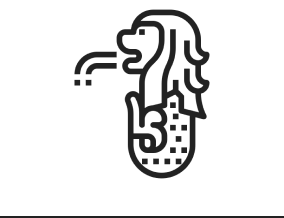Planning, budgeting, and forecasting are essential management tools that help businesses make informed decisions about their future. These processes provide valuable insights into the financial health of an organization, enabling it to allocate resources effectively and achieve its strategic objectives. However, like any other business tool, they come with their own set of advantages and disadvantages. In this blog post, we will explore the pros and cons of planning, budgeting, and forecasting to help you determine whether these practices are right for your business.
What is Planning?
Planning is the process of setting goals, determining actions to achieve those goals, and establishing a timeline for completion. It involves analyzing the internal and external environment, identifying potential opportunities and threats, and developing strategies to capitalize on them. Here are some pros and cons of planning:
Pros of Planning
- Provides Direction: A well-crafted plan provides clear direction and helps employees understand their roles and responsibilities in achieving the company’s goals.
- Helps Prioritize Resources: Planning ensures that limited resources are used efficiently and effectively by allocating resources to specific projects or initiatives.
- Encourages Innovation: Planning enables organizations to identify new opportunities and develop innovative solutions to problems.
- Reduces Risk: Through careful analysis and contingency planning, organizations can minimize risks associated with uncertain events.
- Improves Communication: Plans serve as communication tools, helping to align stakeholders around common objectives and ensuring everyone is working towards the same goal.
Cons Of Planning
- Time-Consuming: Developing a comprehensive plan can be time-consuming and may distract from day-to-day operations.
- Requires Accurate Information: Effective planning requires accurate data and information, which may not always be available.
- Limited Flexibility: Once a plan is established, it may be challenging to adapt to changing circumstances or unforeseen events.
- Potential for Resistance: Employees may resist change or feel disconnected from the planning process, leading to decreased motivation and engagement.
What Is Budgeting?
Budgeting is the process of estimating revenue and expenses over a specified period, typically one fiscal year. It serves as a financial roadmap, outlining how an organization plans to allocate its resources to achieve its goals. Here are some pros and cons of budgeting:
Pros of Budgeting
- Promotes Financial Discipline: Budgets encourage financial discipline by requiring organizations to prioritize spending and adhere to predetermined limits.
- Facilitates Performance Monitoring: Budgets enable organizations to monitor performance against targets, providing insight into areas where improvements can be made.
- Enhances Accountability: Budgets promote accountability by assigning ownership of specific expense categories to individuals or departments.
- Supports Strategic Decision Making: Budgets support strategic decision-making by providing a framework for evaluating the financial impact of various scenarios.
- Encourages Collaboration: The budgeting process encourages department collaboration, fostering better relationships and improved communication.
Cons of Budgeting
- Can Be Restrictive: Overly rigid budgets may limit flexibility and prevent organizations from seizing unexpected opportunities.
- Prone to Error: Estimating revenues and expenses accurately can be challenging, particularly in dynamic environments.
- May Create Competition: Budgets can create competition among departments, potentially undermining cooperation and teamwork.
- Time-Consuming: Preparing a detailed budget can be time-consuming, diverting attention away from core business activities.
What is Forecasting?
Forecasting is the process of predicting future trends based on historical data and assumptions about the future. It enables organizations to anticipate changes in demand, market conditions, and competitive dynamics, allowing them to adjust their strategy accordingly. Here are some pros and cons of forecasting:
Pros of Forecasting
- Improved Decision-Making: Accurate forecasts enable organizations to make more informed decisions regarding resource allocation, pricing, and production levels.
- Early Warning System: Forecasting acts as an early warning system, alerting organizations to potential risks and opportunities.
- Increases Efficiency: By anticipating fluctuations in demand, organizations can optimize inventory levels, reduce waste, and improve operational efficiency.
- Supports Scenario Analysis: Forecasting supports scenario analysis, enabling organizations to evaluate different outcomes under varying assumptions.
- Enables Agility: Accurate forecasting allows organizations to respond quickly to changing market conditions, enhancing their competitiveness.
Cons of Forecasting
- Reliance on Assumptions: Forecasts rely heavily on assumptions about the future, which may prove incorrect or incomplete.
- Susceptible to Errors: Even small errors in input data can lead to significant forecasting discrepancies.
- Resource Intensive: Gathering and analyzing data for forecasting purposes can be resource-intensive, requiring specialized skills and software.
- Difficulty Capturing External Factors: Predicting the impact of external factors such as regulatory changes, economic shifts, or geopolitical developments can be challenging.
Conclusion
Planning, budgeting, and forecasting offer numerous benefits to organizations seeking to navigate uncertainty and achieve long-term success. While each practice comes with its unique challenges, the advantages often outweigh the drawbacks when implemented thoughtfully and strategically. To maximize the value of these tools, consider investing in training, technology, and collaborative techniques that engage employees at all levels of the organization.






